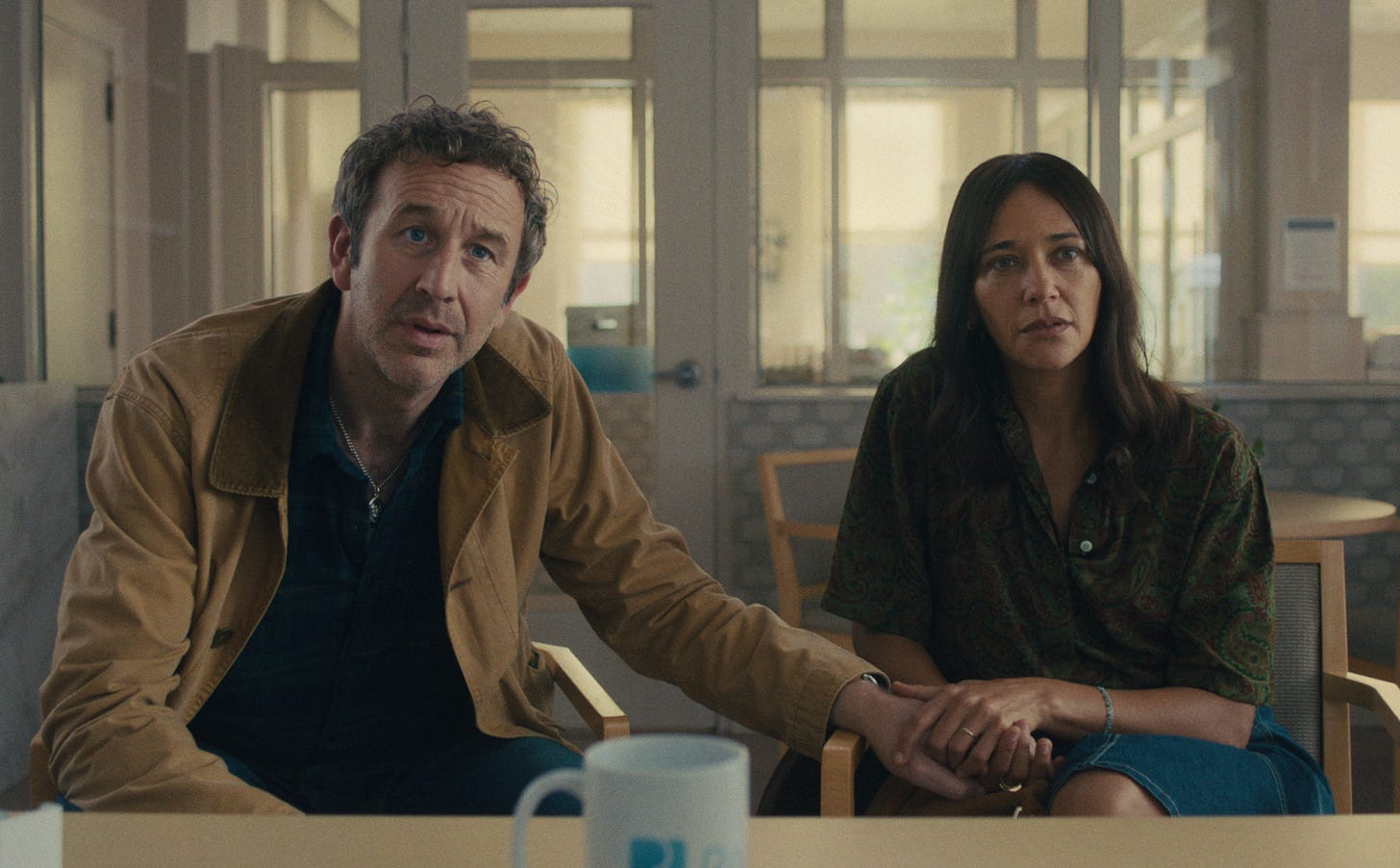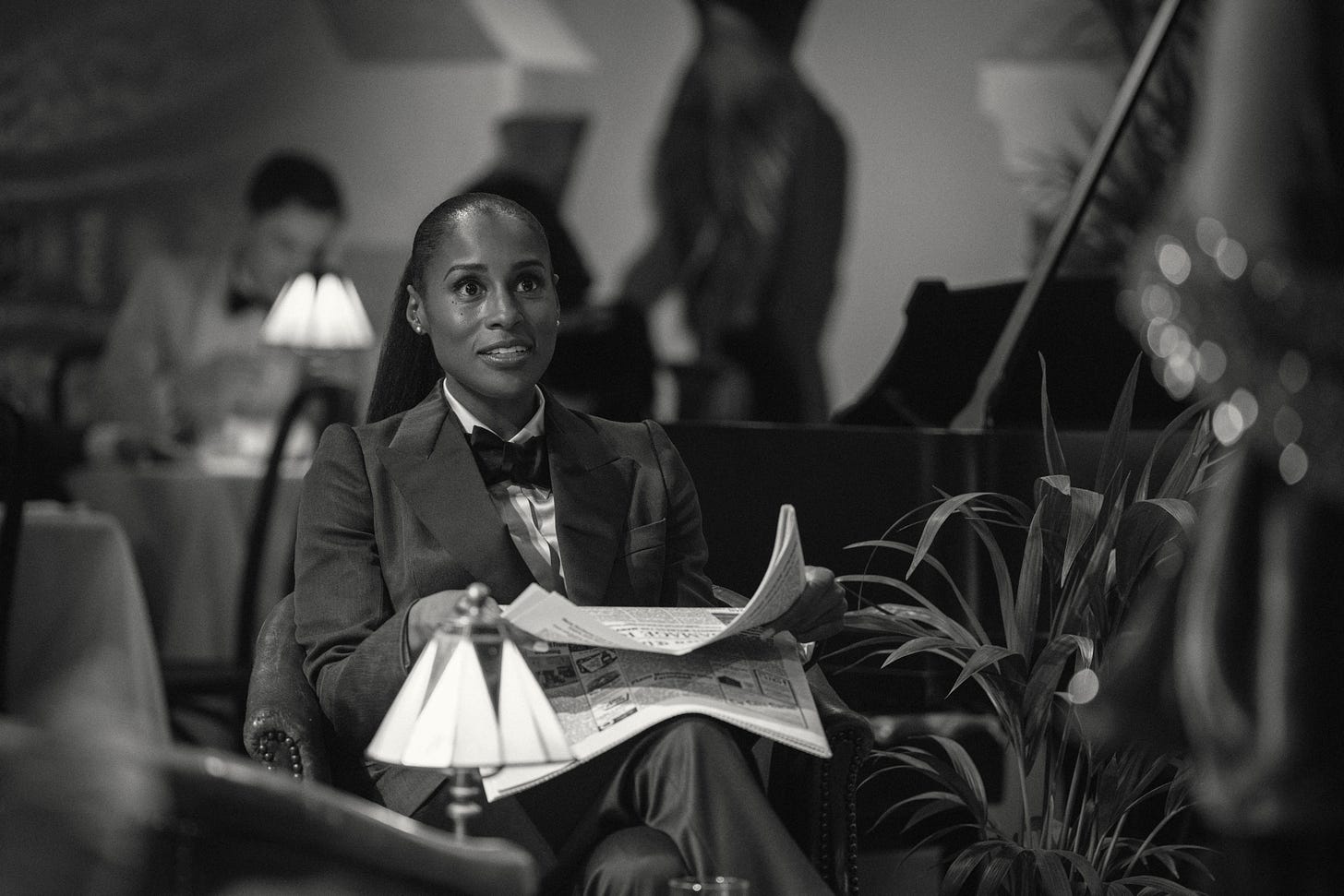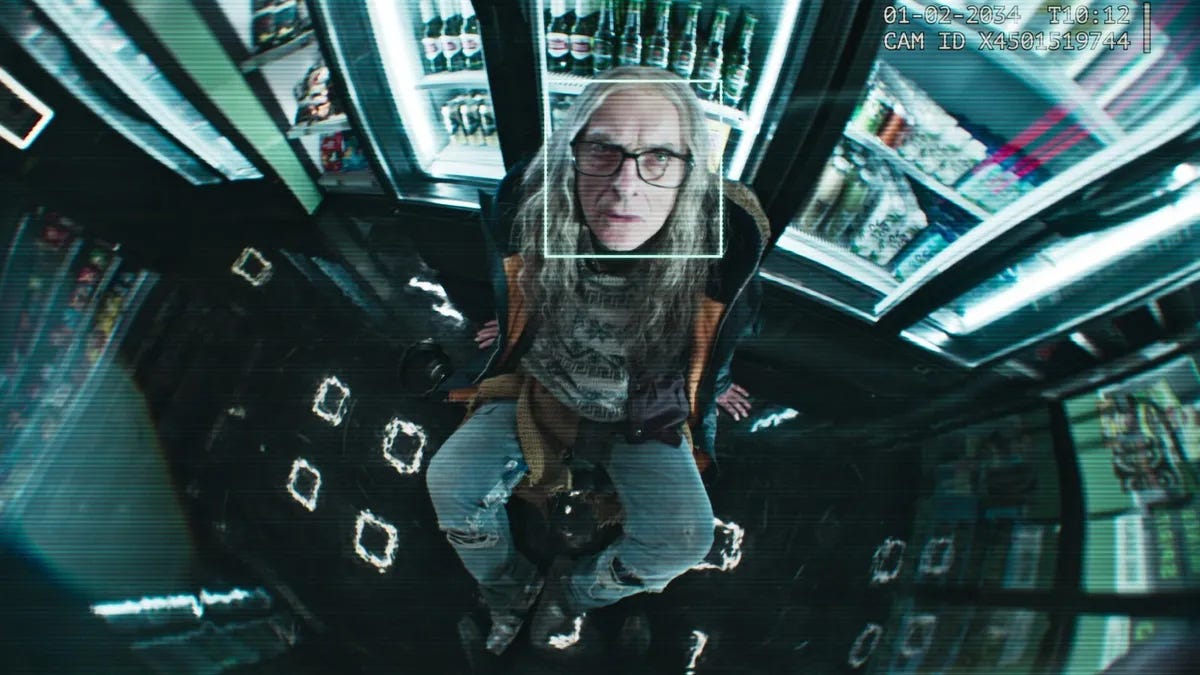Black Mirror: Season 7 (Review)
The Good, the Great and the Super Creepy... Oh and there will be some spoilers...
Anthology series are popular because you can experience a wealth of emotions from episode to episode but Black Mirror, you know that’s going to leave you with a deep sense of unease (in a good way) and season 7 is no different.
If there is a theme for this season, it’s mind-expansion via technology. Sometimes this tech enables virtual reality, other times it unlocks memories or allows for new forms of media, or even manipulating reality itself.
Oh and because this is Black Mirror, there is a lot of easter eggs to hunt down from ‘vintage!’ and St. Juniper to ADIs (the bees from one of my favourite episodes, Hated in the Nation) and, of course, that one song.
Netflix were specific about what I can mention in this review however then they released this episode name trailer which gives away a lot of the details:
So let’s do this, shall we?
Episode 1: ‘Common People’
Amanda and her husband, Mike, are celebrating their anniversary when she begins having headaches which ends up with her collapsing and a tumour is found in her brain. She’s saved by a tech company called Rivermind which creates a back up of her brain on a cloud server. Oh and the surgery is free.
The only downside is it’s a subscription service, starting at $300 a month.
Yeah, lifesaving tech in the age of the subscription model. Horrifying, isn’t it?
Well, we’re here for the duration and it is distinctly unsettling. It’s one thing to pay for Netflix or a virus checker but a person? From unconscious advertisements to price hikes and to pressurised upgrades. The worst part is that, initially, it seems to be such an amazing thing only for the honeymoon period to swiftly peter out.
The other subplot follows Mike as he has to deal with what this actually means, from overtime to watching Amanda sleeping away the day, to burying their dream of having children (pregnancy costs extra…). And that’s just the stuff I can tell you about.
It turns an otherwise uplifting survival story into something much, much darker. Just what you’d expect from a Black Mirror season opener.
Episode 2: ‘Bête Noire’
Translating to ‘a thing or person who you dislike’, that really does sum up the episode as Maria has to deal with her high school nemesis, Verity. Initially a random encounter at the company where she works, a confectionary called Ditta, only for Verity to be hired as her assistant.
As the days of the week—each announced with bright white lettering which takes over the full screen—Maria’s sanity begins to slip as Verity begins to impinge on her world. Things aren’t are she remembers them and little details seem to change in a heartbeat.
It’s really easily to see why Maria’s sanity begins to slip with a sense that this is the bat-shit crazy episode for this season. You’re dragged along with the protagonist and only in the denouement do you get understanding. It’s still well worth the ride though and is definitely not going where you think it is.
Episode 3: ‘Hotel Reverie’
This one was a bit of a slow burn, despite a rather novel premise. ReDream is a new technology which allows an actor to recreate a beloved film, in this case the titular Hotel Reverie. Issa Rae plays an actress with a passion for old British movies and gets the chance to recreate one of her favourite films, playing the male lead Alex, She doesn’t realise however that this new tech is going to place her inside a computer recreation of the film, with AI actors and a hotel rendered in crisp black and white.
Emma Corrin plays the female lead in the film and it quickly turns from a standard Whodunit to something a lot deeper, whilst retaining the charm of romances in old movies. I really like her performance, particularly, as I didn’t realise who it was on the first viewing but she manages to capture the unique charm of the stereotypical British female of early cinema and then take the character somewhere much more interesting.
Episode 4: ‘Plaything’
For me, this was the one episode which left me feeling a little uneasy., like Hated in the Nation-level of ‘oh shit’. It’s also the much-questioned Bandersnatch-sequel. Except it’s not that, it’s more a cameo of much loved characters, including Will Poulter’s genius game designer, Colin Ritman, who serve to ground a plot.
Police officers arrest Cameron Walker (played brilliantly by Peter Capaldi) in 2063 and have to figure out who the corpse is that his DNA has been linked to. Cameron, on the other hand, takes them through a fascinating narrative in which he becomes the unlikely parent to a digital lifeform called Thronglets who exist, Sims-style, in a computer game.
Think Minions but with 16-bit graphics.
It presents as a police procedial with a Good Cop and a Bad Cop (called Kano, which has to be a Mortal Kombat reference given the grounding in the games industry). Ultimately, it leaves a nasty feeling as the credits roll but for all the right reasons. Both at the narrative and the distinctive technological twist that Black Mirror brings to all its best episodes.
Episode 5: ‘Eulogy’
I spent the entire episode waiting for Something Bad to happen but this turns out to be a bittersweet episode which tugs on your heartstrings and, because of that, quickly became one of my favourite episodes of the season.
I absolutely love the idea of being able to step into a photograph, it looks amazing but also offers more than a single 2D image could ever convey. But the storyline is also sad because the memories being revisited are tragic; plenty of opportunities missed and the regret of only seeing something years later.
This episode was an emotional gut punch but not in the usual hit and run way of many Black Mirror episodes; it’s quiet, unassuming and works all the better for it.
Episode 6: ‘USS Callister: Into Infinity’
For many folks, this was the episode they wanted a sequel for. Robery Daly is dead and now the crew of the Callister are exploring a virtual universe bigger than they could ever imagine… and monitised out of the arse.
Yes, the game runs on micro-transactions and the crew don’t have player tags so they’re forced to steal from legitimate players. In the real world, Nanette Cole is living with the knowledge she had something to do with Robert’s death and his business partner.
This episode is a bit longer than we’re used to and I think it’s needed as the plot goes places beyond just survival in the cut-throat world of live service MMO games. It’s a lot of fun, and surprisingly dark in places, but I have a feeling this won’t the last time we see the USS Callister and its crew in action.
All in all, after last season’s shaky start this is an excellent return to form for not only ‘classic’ Black Mirror but also a unified theme that leaves you questioning things you’d really rather not while sober.
The dark underpinning of each story is just enough to be enjoyable but unsettling, with a nice balance between callbacks and actual previous episodes to make it easy for new viewers to enjoy the series. However it also goes to unexpected places which means the episodes are just as exciting for folk, like me, who’ve been avid viewers since the series premiered back on Channel 4 in 2011 with ‘The National Anthem’.
Black Mirror: Season 7 is steaming on Netflix now.










